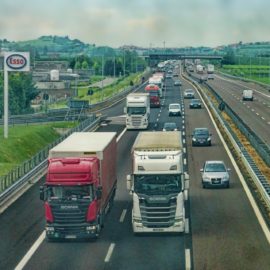
The EPA permit pollution as they set acceptable limits on dangerous emissions. Bob Marshall asks if their mane should be change to reflect this.
A frustrated employee of the Environmental Protection Agency once asked me this question: If permits for the legal pollution of cancer-causing agents into the air were granted by a public vote rather than politicians – some of whom work at or even own polluting businesses – would the accumulation of toxic pollution continue to make Louisiana the nation’s leader in health risks from pollution? The answer was obvious: None of us would vote to allow the poisoning of the air we and our children breathe. Of course, we both knew that happy result will never happen. And the reasons are parameters outlined in the question. Let’s take them one at a time, starting with ”legal pollution.” Sound like an oxymoron, right? After all, pollution harms citizens, and lawmakers must protect citizens, not endanger them. So how can something as bad as pollution be legal? Well, it all comes down to the privileges granted by our governments to corporate health and citizenship over human health and citizenship.
theadvocate.com
Businesses need to pollute as they make things. Some, like oil and chemicals, pollute a lot. Others far less.
When science began proving pollutants can harm and kill us, our politicians could have demanded polluters find clean, non-polluting systems. But when businesses said it would cost too much money, our lawmakers came up with an alternative: Finding the limits of how much cancer-causing pollution you could be exposed to before increasing your families’ risks of painful injury and death. They called it ”acceptable risk” levels. For many cancer-causing agents that comes to 1 in 10,000 – meaning if 10,000 people were exposed to that level 24 hours a day for 70 years one would likely develop cancer. So corporate citizens are granted permission to put poisons into your lives 24/7, 365 – they can pollute legally. (Oh, by the way, human citizens have no such privileges.) That would seem harmless enough if one plant is releasing just one carcinogen (and you don’t live directly downwind).
Where you live matters. Up wind or down wind of a polluting source means a lot!
But what happens when you get, say, 10 or even 20 plants in the same area with each releasing just one or more pollutants every hour every day? This brings us to the second important parameter in that question: ”cumulative risk.” In the jargon- and statistics-filled world of pollution science this is the least ambiguous term. It’s also the most terrifying and urgent. It’s a measure of how the chances increase that you and your children will suffer injury and early death when your lawmakers allow several plants to spew one or more legal pollutants in your area 24/7, 365. ‘You can’t judge safety by looking at each plant individually when they’re all adding to the community’s air,” said Anne Rolfes, director of the pollution fighting Louisiana Bucket Brigade. ”You need to look at the total amount of pollution already permitted on that community before issuing any more. ”That’s what assessing cumulative impact means.”
Cumulative impact. That is what Cancer Alley faces and the reason people are up in arms.
It’s the reason why St. James Parish residents are fighting against the state’s permitting of a massive new plastic plant complex by the Taiwanese company Formosa Plastics. It would double the total heavy amount of pollution currently legally permitted by more than 15 other businesses in a roughly 10-mile stretch of land – a stretch known worldwide as ”Cancer Alley.” And that brings us to the next and most discouraging parameter of the opening question: A state agency, not the EPA, issues permits, and its policies are set by legislators who may work for or even be owners of polluting companies. There is no law requiring them to recuse themselves in this conflict of interests. They can excuse this by claiming if their constituents didn’t like the pollution they permit, they could be voted out of office. But the real test of approval would come if just once the human citizens of our democracy – especially those living in the risk zones – decided on a permit. Until then, the truth about who owns the air we depend on for health and happiness is encapsulated by this admission from that same frustrated EPA employee: ”The reality is our initials should not be EPA but PPA – we’re the Pollution Permitting Agency.” And it’s all legal.
Bob make a point. The EPA does permit pollution. But calling it the Pollution Permitting Agency does not sound positive!



